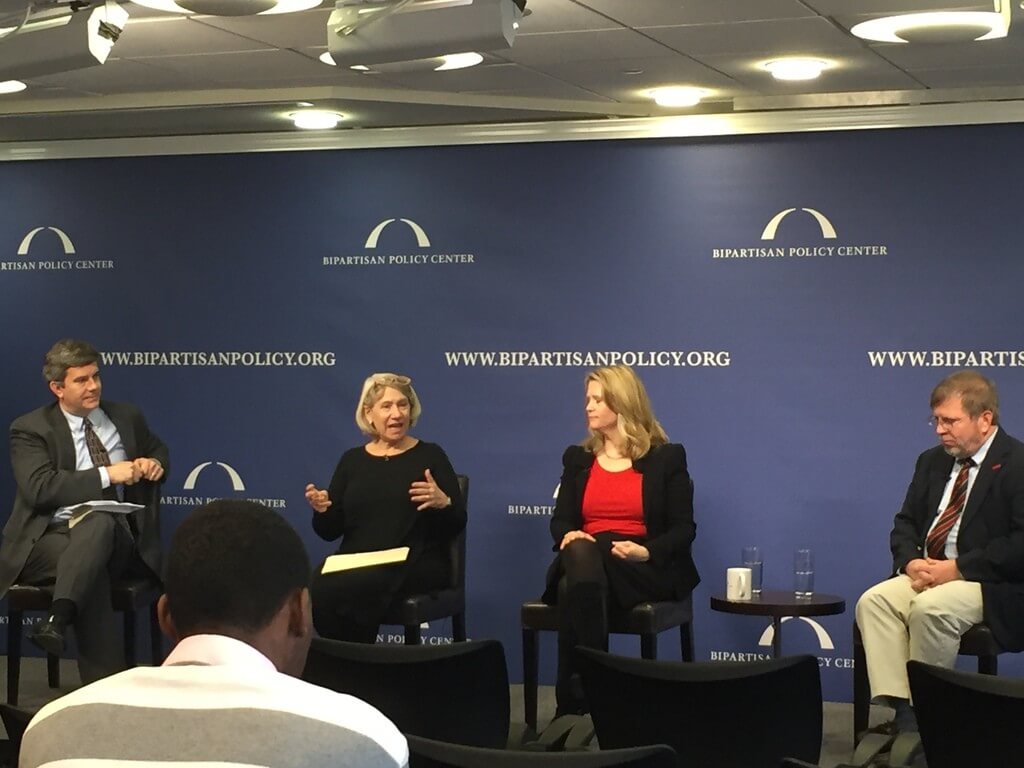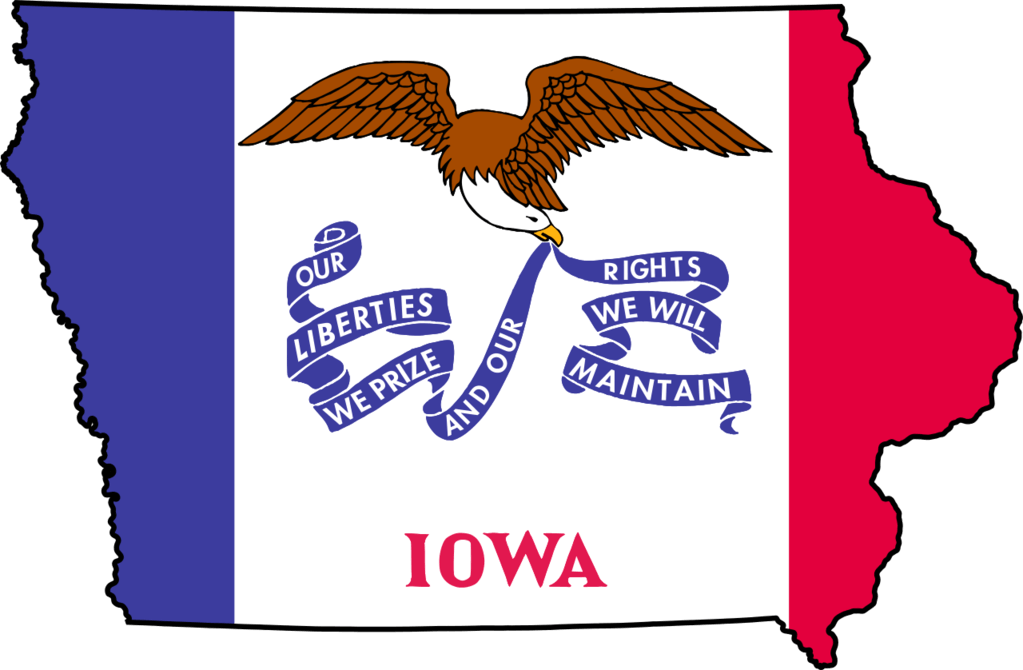
Experts from both sides of the aisle discuss the Iowa Caucus at the Bipartisan Policy Center.
WASHINGTON – Every four years, the refrain arises: Why start the presidential primary contests in Iowa? Campaign experts Wednesday had lots of reasons: It is politically if not demographically diverse. It’s small enough that candidates can reach a lot of voters. It doesn’t have the kind of big-money campaign donors as other states. Added to the next three primary states, you get a population that reflects the country.
They made their case for Iowa during a conversation at the Bipartisan Policy Center.
“It’s a great education for politicians,” said Anita Dunn, a former senior adviser to Barack Obama’s presidential campaigns. “A lot of the issues are regional, not really partisan.”
But according to critics, that’s yet another reason to bypass Iowa. One is Time’s Michael Crowley.
“It’s long been a custom of presidential politics to see the candidates extol the virtues of expensive farm and ethanol subsidies with precious little economic rationale,” he wrote before the start of the last presidential election.
He also noted Iowa’s unusually white and homogenous population as another reason it is unsuited for the first contest.
While the panel speaking Wednesday conceded that Iowa, with a population that is more than 90 percent white, is not representative of the racial makeup of the country, it is politically diverse.
“You have very strong conservative Republicans voters but you also have this very strong populist strand on the Democratic side and every shade of grey in between,” said Sarah Fagen, director of political affairs during the administration of President George W. Bush.
“Very few states elect Tom Harkin and Chuck Grassley,” she said. Harkin recently retired after a long career as a liberal Democrat who supported same-sex marriage, abortion rights and health care reform while Grassley, who is chairman of the Senate Judiciary Committee, is a staunch conservative.
David Redlawsk, a political scientist at Rutgers University, said it’s more useful to think of Iowa as just a piece of the early primary puzzle.
“If you look at the carve-outs, Iowa, New Hampshire, South Carolina and Nevada,” Redlawsk said. “Then you get four states combined that are representative of the parties and of the electorates in each party, if you take them as a group.”
Some argue that even if that argument is correct or other, more representative states were chosen, the staggered primary system itself has flaws. In a 2010 study economists Brian Knight and Nathan Schiff found that voters in early states have up to five times the impact as those in late primary states. They wrote that this kind of overweighting “represents a deviation from the democratic ideal of ‘one person, one vote.’”
Iowa has been first since 1972. Since then other states have tried to jump past the Hawkeye state, without success. And it’s not just pride — there are concrete policy benefits to voting early.
“One is that whoever becomes president of the United States the odds are he has very deep and personal relationships in that state and those people are going to have an ear,” Dunn said. “Second because the candidates have to learn those state’s issues in a way they don’t have to learn other issues.”
Redlawsk says that the first contest does not need to be in Iowa but that it does need to be “a place where candidates can actually engage voters, where the big money isn’t the driving force.”
But for Fagen, the choice is easy.
“I think Iowa works,” the Iowa native said with a wink. “But I’m a little biased.”


